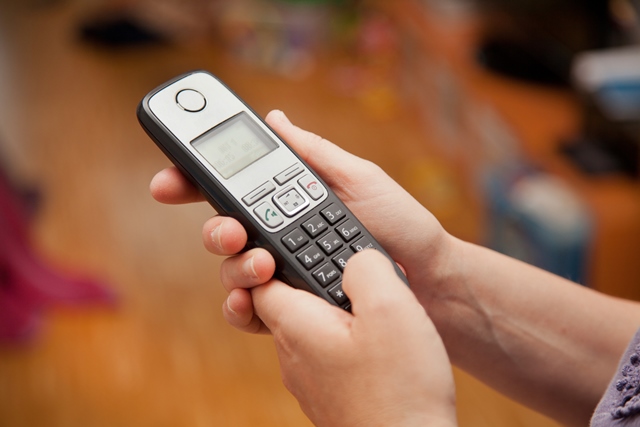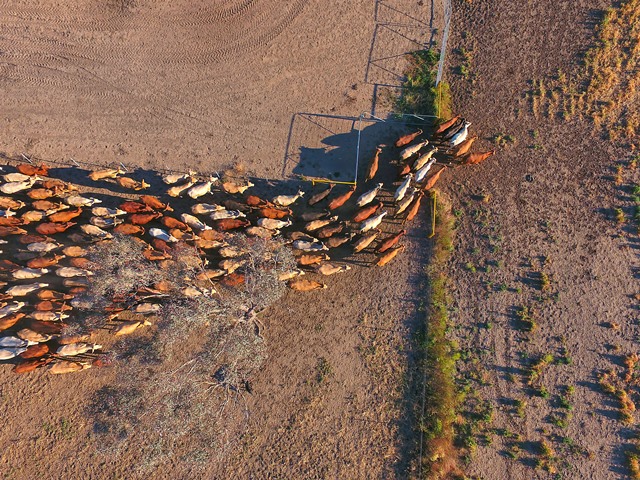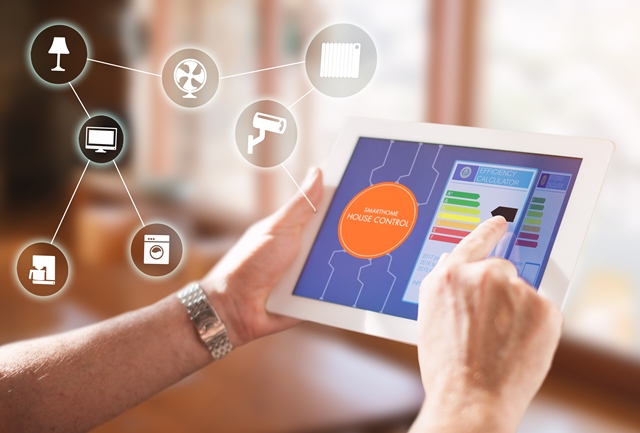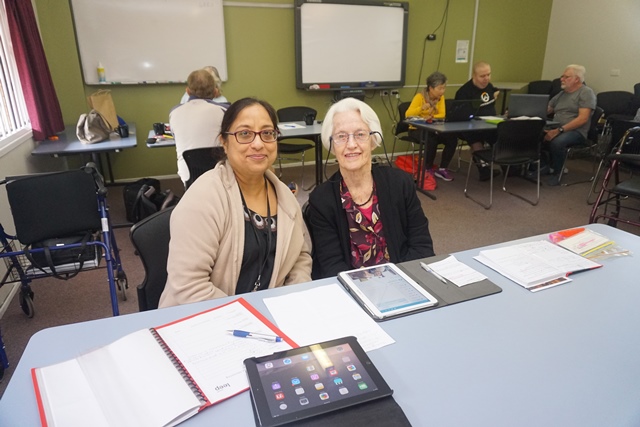Hot Issues
Welcome to the latest current affairs that impact communications consumers.
Sign up for ACCAN's weekly newsletter to have these news items sent to your email address each week.
[ List view | Detailed view ]
- Details
 In our 2018-19 Pre-Budget submission, we took the opportunity to highlight telecommunication areas that could benefit from more funding in the Federal Budget.
In our 2018-19 Pre-Budget submission, we took the opportunity to highlight telecommunication areas that could benefit from more funding in the Federal Budget.
Our recommendations span a range of issues, from mobile coverage to affordability and accessibility. Many of these are not new recommendations, but they are ones that are important to consumers and worth highlighting once again.
Read more: Calling for telecommunications funding in the Federal Budget
Write comment (0 Comments)- Details
 ACCAN has welcomed Telstra’s announcement that it will no longer charge its customers for having a Silent Line from 18 February, 2018.
ACCAN has welcomed Telstra’s announcement that it will no longer charge its customers for having a Silent Line from 18 February, 2018.
Having a Silent Line means that your number is not listed in a public directory or displayed on the recipient’s handset when you make a call. Previously, Telstra customers had to pay $2.93 per month for this service.
Read more: Telstra has scrapped Silent Line fees
Write comment (3 Comments)- Details
 ACCAN’s submission to the Independent Review into the Telecommunications Industry Ombudsman (TIO) highlighted the important role of the TIO, but also identified a number of areas for improvement.
ACCAN’s submission to the Independent Review into the Telecommunications Industry Ombudsman (TIO) highlighted the important role of the TIO, but also identified a number of areas for improvement.
The final report agreed with ACCAN’s recommendations that there is a need for:
Read more: Positive outcomes from TIO review
Write comment (0 Comments)- Details
 With many people travelling or taking time off over the holidays, we thought we’d share some tips to help you keep track of your data usage, use your phone overseas and get issues resolved.
With many people travelling or taking time off over the holidays, we thought we’d share some tips to help you keep track of your data usage, use your phone overseas and get issues resolved.
Mobile
If you are travelling locally you may be more reliant on your smartphone and you might find your data allowance getting used up more quickly. Check out our tip sheet on how to use less data on your smartphone and our blog on how much excess data will cost you.
Read more: Phone and internet tips for the holidays
Write comment (0 Comments)- Details
 RRR Communications Coalition celebrates one year
RRR Communications Coalition celebrates one year
By Teresa Corbin & Fiona Simson*
Anyone who lives in a rural or regional area knows the pain of poor telecommunications services. We often hear stories of people pulling their hair out trying to run businesses, apply new technologies and educate their kids on small data allowances and unreliable connections.
Read more: All we want in 2018 is #BetterBushComms
Write comment (0 Comments)- Details
 nbn announced today that it will 'pause' the rollout of NBN HFC connections. This is because nbn has identified issues in the HFC rollout that need remediation, and will be taking a more careful approach that should result in improved customer experience. ACCAN welcomes this approach.
nbn announced today that it will 'pause' the rollout of NBN HFC connections. This is because nbn has identified issues in the HFC rollout that need remediation, and will be taking a more careful approach that should result in improved customer experience. ACCAN welcomes this approach.
Consumers in HFC areas may be wondering how this announcement will affect them. We have identified five different situations that consumers may find themselves in. See below for information on how consumers in HFC areas may be affected.
Read more: nbn ‘pauses’ new HFC connections
Write comment (0 Comments)- Details
 In November, the ACCC announced that Telstra will offer remedies to around 42,000 customers. Announcements that Optus would compensate more than 8,700 of its customers and that TPG would compensate nearly 8,000 of its customers for the same issue were made in December.
In November, the ACCC announced that Telstra will offer remedies to around 42,000 customers. Announcements that Optus would compensate more than 8,700 of its customers and that TPG would compensate nearly 8,000 of its customers for the same issue were made in December.
Both announcements received wide coverage in the media. There is some confusion around the issue and who is entitled to a remedy. This blog attempts to clear up this confusion.
What is the issue?
While there are a number of issues that consumers are reporting with services over the NBN, this compensation relates to a very specific problem where the maximum download speed consumers paid for was never possible at their premises.
Read more: Getting a refund for unattainable NBN speeds
Write comment (0 Comments)- Details
 Many Australian not-for-profit organisations and businesses currently have domain names for their internet presences under the second level domains. For example: *.com.au and *.org.au. Domain names are used to find resources and services on the internet such as web pages (eg www.accan.org.au) and email addresses (This email address is being protected from spambots. You need JavaScript enabled to view it.).
Many Australian not-for-profit organisations and businesses currently have domain names for their internet presences under the second level domains. For example: *.com.au and *.org.au. Domain names are used to find resources and services on the internet such as web pages (eg www.accan.org.au) and email addresses (This email address is being protected from spambots. You need JavaScript enabled to view it.).
Recently, auDA, the body responsible for Australia’s domain name system agreed to introduce ‘direct registrations’. This is where your chosen internet domain name does not use the familiar “.com.au”, “.net.au”, “.org.au”, and new names will be simply “orgname.au”.
Read more: Australia’s Domain Name System is changing
Write comment (19 Comments)- Details
 In the flurry of media this week about the TIO Annual Report and 41 per cent increase in telecommunication complaints received, Communication Alliance and nbn both made reassuring comments about the state of the problem.
In the flurry of media this week about the TIO Annual Report and 41 per cent increase in telecommunication complaints received, Communication Alliance and nbn both made reassuring comments about the state of the problem.
But how reassured should we be?
Communications Alliance is “pleased” that in the last three months the rate of complaints slightly decreased (from 9 per 10,000 services in operation between Apr-Jun 2017 to 8.3 per 10,000 Jul- Sept 2017).
Read more: Fact Check: Communication Alliance and nbn media releases
Write comment (0 Comments)- Details
 Consumers are increasingly buying Internet-connected appliances for their homes. Often referred to as the Internet of Things (IoT), the range of internet-connected products already available includes not only the obvious things like Smart TVs, gaming consoles, security and safety cameras, but smart light bulbs, sewing machines and even dishwashers.
Consumers are increasingly buying Internet-connected appliances for their homes. Often referred to as the Internet of Things (IoT), the range of internet-connected products already available includes not only the obvious things like Smart TVs, gaming consoles, security and safety cameras, but smart light bulbs, sewing machines and even dishwashers.
Telstra says the average home already has 11 or 12 connected devices and predicts that by 2020 a typical home will have about 30.
As well as being useful by enabling us to remotely manage our home environments, many of these devices also collect a lot of data. Conceivably, this data collection can pose huge risks to consumers’ privacy and security.
Read more: How safe are IoT devices?
Write comment (0 Comments)- Details
 Have you noticed how more and more everyday items are now connected to the internet?
Have you noticed how more and more everyday items are now connected to the internet?
While we used to have ordinary watches that told us the time and the date, we now have smartwatches that track our fitness, alert us about emails and more.
We are told that we can expect many things in our homes will be connected, our cars will be connected and we will see even more connected ‘wearable’ devices in the future. These new devices and services raise many questions and concerns for consumers.
Read more: Your place in the connected world
Write comment (0 Comments)- Details
 The 2017 Australian Digital Inclusion Index showed that overall digital inclusion is growing in Australia.
The 2017 Australian Digital Inclusion Index showed that overall digital inclusion is growing in Australia.
Since 2014, when data was first collected for the Index, Australia’s overall digital inclusion score has improved by 3.8 points, from 52.7 to 56.5.
The Index also found that gaps between digitally included and excluded Australians are “substantial and widening.”
Read more: Helping people Leep into the digital world
Write comment (0 Comments)